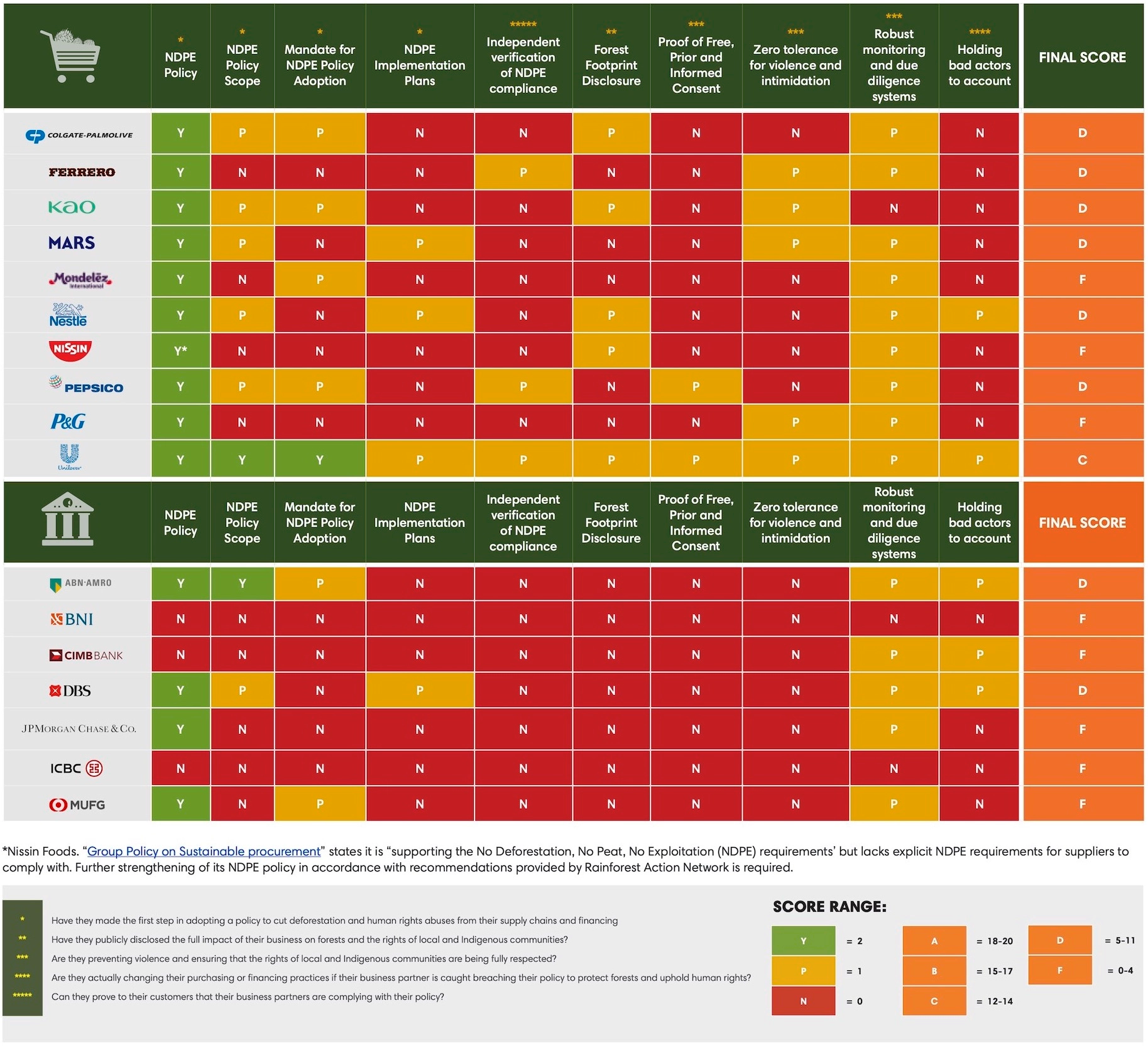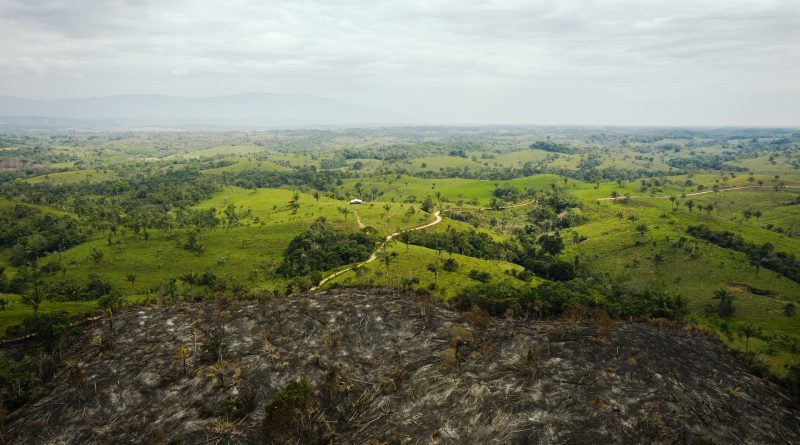Links between Banks and Deforestation
Links between Banks and Deforestation
Almost 25 years have passed since December 11, 1997 when the Kyoto Protocol was published, that is the international treaty on the environment concerning global warming, enacted in the Japanese city of Kyoto on the occasion of the “COP 3” Conference of the Parties to the Framework Convention. United Nations on Climate Change (UNFCCC).
About 7 years have passed since the Paris agreement, reached on 12 December 2015, i.e. that international treaty, also stipulated between the member states of the United Nations Framework Convention on Climate Change (UNFCCC), regarding the reduction of gas emissions greenhouse and finance.
Yet despite more or less thunderous proclamations from politicians and states, an average of 10 million hectares of forests disappear worldwide every year. The data on global deforestation is provided by the FAO, the UN agency for agriculture. The average of 10 million hectares per year covers the years from 2015 to 2020.
The issue is that the agreements stipulated between the States have lacked, up to now, a real policy of control, verification, setting and direction of the activities of private individuals including, obviously, banks, multinationals and finance that travel on a free highway. autonomous and free from any international agreement and in defiance of human and ecological rights.
A tragedy (and we are optimistic) that if it does not find political solutions starting from the small representatives of the Local Authorities (Municipalities, Provinces, etc.) to the large world organizations (States, UN, etc.), it risks bringing horses and riders to their knees , citizens and multinationals, because the ship of stupidity is out of control and the helm of the route does not have a helmsman.
To the detriment of personal interpretations and points of view, which can always be partial and biased, a report by the RAN (Rainforest Action Network), drawn up recently in 2022, tells us that the commitment of large banks and multinationals on the issue of deforestation (following the Protocols and Agreements) is still largely insufficient.
For the record, please note that the Rainforest Action Network is an environmental organization based in San Francisco, California, in the United States.
Returning to the data issued by the RAN, despite announcements and commitments, the main multinational companies and banks are unable to stop support – direct and indirect – for deforestation and human rights violations.
The data were processed by examining a sample of companies and credit institutions linked to the exploitation of forest raw materials. The result was, to say the least, disarming.
In fact, none of the 17 brands and banks analyzed has implemented adequate actions to address the problem of the destruction of wooded areas caused by their businesses. Nor, much less, that of land grabbing (the so-called land grabbing). Nor that of the violence perpetrated to the detriment of local and indigenous communities and therefore of the violation of human rights.
The marks assigned to the study groups were, consequently, all insufficient and, in some cases, seriously insufficient.
Specifically, the evaluation of the RAN was based on five questions:
1. Have banks and companies taken at least a first step to adopt policies that eliminate support for deforestation and human rights violations in their commodity supply chains?
2. Have they made public the impact of their activities on forests and on the rights of local and indigenous communities?
3. Are they preventing violence and ensuring full respect for the rights of local and indigenous communities?
4. Do they actually change their purchasing or financing practices if the business partner is caught violating their forest protection and human rights policies?
5. Can they demonstrate to their customers that their business partners are meeting their standards?
The data tells us that five out of seven banks got an F, the worst grade. These are the Indonesian state bank BNI, the Malaysian CIMB, the Chinese ICBC. In addition to the Japanese MUFG and the US JPMorgan Chase, which last year adopted the “No Deforestation, No Peat and No Exploitation” (NDPE) principle.
It is clear, therefore, that the main financial institutions of global importance continue to finance clients and assets that promote deforestation and human rights violations.
In summary, it emerges that, from the Paris Agreement (2015) to date, the seven banks examined have given at least $ 22.5 billion to companies that exploit raw materials for various reasons with risks of impacts on wooded areas.

These companies operate, among other things, in the three major regions hosting tropical forests: Indonesia, the Congo Basin and the Amazon. Among these banks, JPMorgan Chase was the most “lavish” by financing 6.9 billion dollars; this is followed by the MUFG with 4 billion dollars.
On the side of non-financial companies, there are three that have not yet made substantial progress to put an end to deforestation. They are the multinational consumer goods company Procter & Gamble, the confectionery manufacturer Mondelēz and the Japanese food company Nissin Foods.
In the background, the timid improvement in the policies of some groups, compared to the previous year. Among these are: Colgate-Palmolive, Ferrero and Kao, but still lag behind others. Among these, Unilever, which appears to be the only company to have adopted a concrete sustainability policy on the supply chains of raw materials that pose risks to forests, as well as disclosing its initial forest footprint.
Nestlé, on the other hand, is the only company that has committed to disclosing (by 2023) its global forest footprint in the three main regions of the rainforest: Indonesia, Congo and the Amazon.
For the rest there is the hope that the others will also take on equal commitments but in the background there is the deafened silence of the commitments of politicians and candidates, in their own election campaigns on the subject.
It would be enough to put stakes in the “free markets” against the acceptance of products and services that do not meet certain standards but this, we know, is the wall in which the bigotry of those who oppose it is often and frequently broken, saying that it would go against the free movement of goods. Instead, we are actually questioning the free movement of rights and life.
Among all the infringements, one of the most serious is that of the relationship with suppliers of raw materials.
In fact, none of the multinational companies examined has suspended their relations with those who continue to violate the basic rights of communities and to source their supplies from producers who cause deforestation.
Furthermore, no bank or company under analysis has asked its suppliers, customers and investors for proof of compliance with the right to free, prior and informed consent (FPIC).
It is recalled that the Free, Prior and Informed Consent (FPIC) is intended to establish the participation and consultation from below of an indigenous population before the start of development on the ancestral land or the use of resources in the territory of an indigenous population . In short, the FPIC is a specific right that belongs to indigenous peoples and is recognized in the United Nations Declaration on the Rights of Indigenous Peoples (UNDRIP). It allows them to give or deny consent to a project that may be of interest to them or their territories. But all this seems to be of no interest either to finance or to the concrete acts of the major parties (of any origin and orientation).
The result is that, to date, no bank or company has disclosed the procedures it would use to ensure respect for the rights of indigenous peoples and local communities to say no to development on their lands.
In fact, it is evident that, often, what makes declarations and commitments to eliminate deforestation unreliable is the absence of independent and credible verification mechanisms that guarantee compliance with the policies of the NDPE (No Deforestation, No Peat, and No Exploitation: none deforestation, no peat bog drainage and no exploitation). Add to this the consideration that companies are unable to identify the sources of all the raw materials they purchase.
Without going into further analysis and data, it is evident that concrete control and verification (through real certification systems, which should be mandatory) is needed for this insipid criterion of the free market that has nothing to do with anything other than making it irresponsible and irresponsible. uncontrollable processes, systems, companies and finance.
And so while there have been some improvements in the traceability and disclosure of supplier lists over the past year, greater transparency is needed to understand the full extent of the impact each company has on palm oil supply chains. pulp and paper, beef and soy, to name a few.
To this we must add that this battle, which is now a global war, is won by also changing the production models that are too detached from human and ecological systems. Circular Economy, Agroecology, Democratic Renewable Energy, are some of the aspects that Agendas of Governments and activities of Local Authorities must put on the agenda.
An integral ecology is needed without which, past 2030, the progressive descent towards the annihilation of this civilization will begin, dragging with it climate, environment, finance and multinationals.
We do not want to follow this descent and we strongly believe in the awareness of a civilization, still too sleepy, which does not consider that when it buys any good and service it becomes Politics.
Guido Bissanti
Fonte foto:
– https://www.ran.org/

